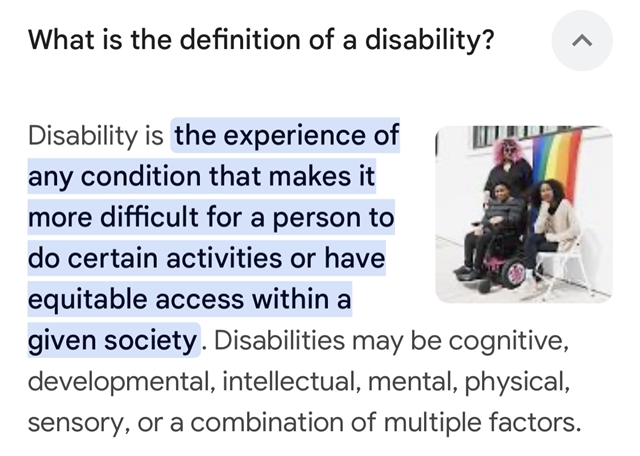Hi All
Recently I've been struggling to analyse what "reasonable adjustments" for my late diagnosed ASD level 1 are appropriate for me from a work setting.
This has spun off and intertwines with what reasonable adjustments I ought to make simply in my daily life.
One of the lovely people here recently shared a website with advice on moving beyond burnout.
Autistic Burnout Recovery: How to Build a Recovery Plan - Neurodivergent Insights
In this I encountered the term Internalised ablism for the first time.
A quick definition is
"Internalized ableism (sometimes discussed as internalized stigma) refers to the process by which individuals absorb negative societal messages about their own identity. For autistic people, this can mean adopting beliefs that autism is inherently “wrong” or “deficient”—ideas that stem from a society that often values neurotypical traits over neurodiversity."
I straight away found this a very useful concept to apply to my analysis of just why it is so difficult for me to recognise and make adjustments to get on better with being autistic.
I'm one to check sources and evidence if I can - albeit these days have grown to trust general AI to do it for me. So this is what chatGPT says about research evidence for it in those with autism:
"Summary
In summary, evidence from both quantitative and qualitative studies supports the existence of internalized ableism among autistic individuals. This internalization of negative societal messages is linked to:
- Increased mental health challenges (e.g., anxiety, depression).
- Behavioral outcomes such as camouflaging, which, while sometimes adaptive, can be psychologically costly.
- Challenges in forming a positive identity as autistic individuals navigate a world that often holds devaluing views of neurodiversity.
As research in this area continues to develop, many experts stress the importance of shifting societal narratives—from deficit-based models to those that affirm and celebrate neurodiversity—to help reduce the internalized stigma experienced by autistic people."
For me this is about recognising and acting rationally upon internalised beliefs and prejudices that form my expectations about myself as being more capable than someone with a lifelong developmental disability such as autism can reasonably be expected to be in certain respects.
In the day since coming across this my personal "deep dive" has thrown up some dark aspects of my reaction to disability in others that I have had in the past and do still arise today. I remain ashamed about this. The first time I encountered the term "neurodiverse" for example I had a pretty hostile personal reaction to it... This sort of attitude extends to the extent that my career has been about helping people "get better" from disability. To perhaps be nice to myself on this I am at least aware and sensitive enough to work on balancing the bias out when I see it in myself about others. Oh, and some disabilities it is possible to get better from and with :-)
So much of this seems to be about social advantage or disadvantage - including how people might "game" the system to take unfair advantage of others in society for selfish goals.
How much society is taking from us and truthfully how able one is to give to seems to be linked to capability pretty deeply.
How best for society to optimise capability for everyone (does it really want to) ?
I'm coming around to the realisation that pragmatically society is not adequately equipped or prepared to do the work for me in working out what reasonable adjustments I need - no matter how reasonable it might be to expect it to be.
I will need to self advocate for this - it's just so damn tricky...
Thoughts anyone?
All the best :-)



